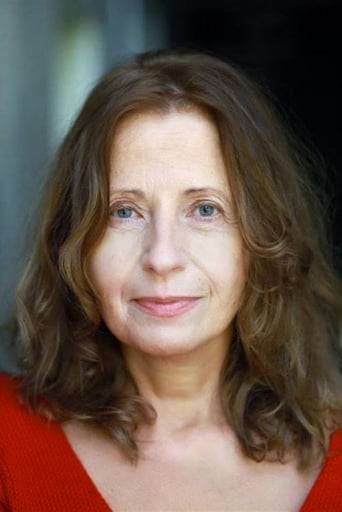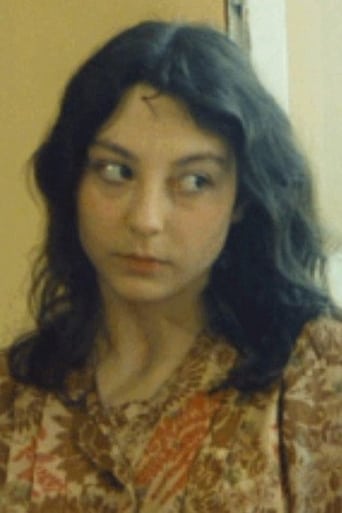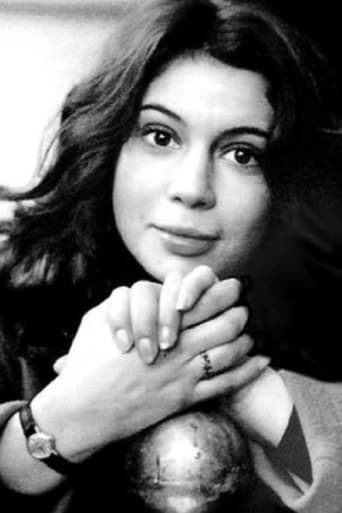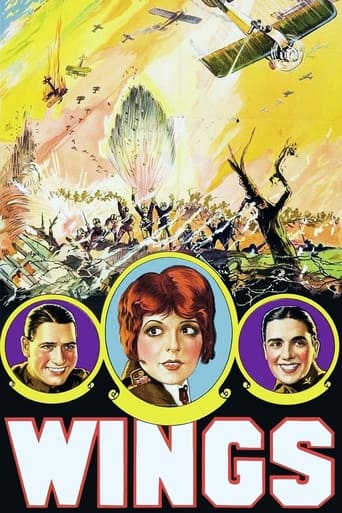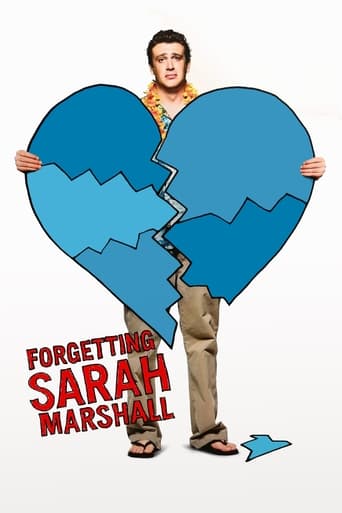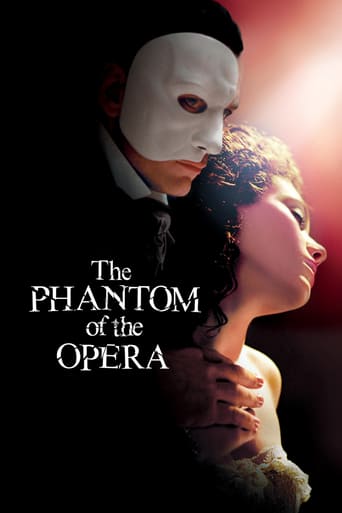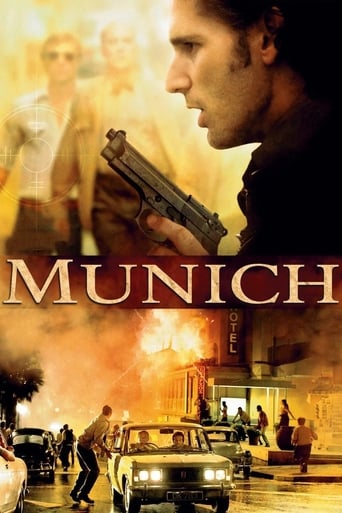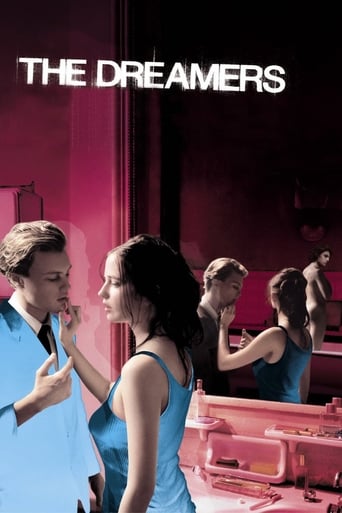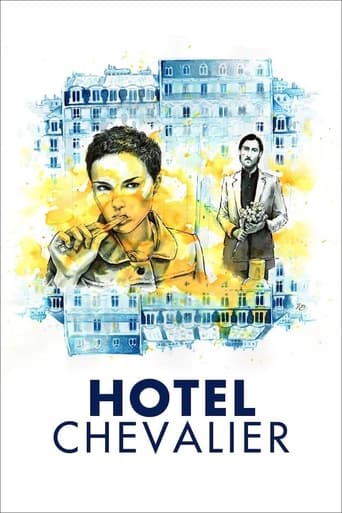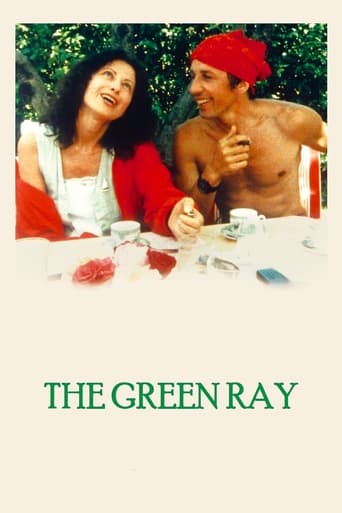
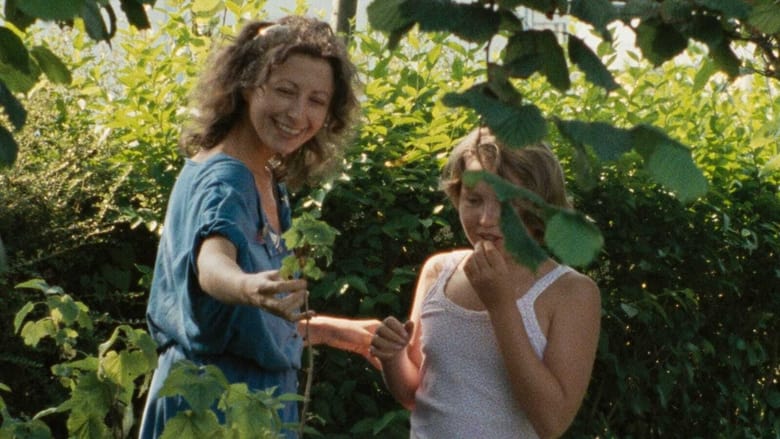
The Green Ray (1986)
A lonely Parisian woman comes to terms with her isolation and anxieties during a long summer vacation.
Watch Trailer
Cast


Similar titles
Reviews
I already liked this film a lot having owned it on DVD as part of a great value Rohmer box set. However when the opportunity came up to see it at the cinema today I couldn't pass it up. This film and others by the same director have influenced other films which I like a lot (e.g. Before Sunrise/ Before Sunset) in that there is little action but lots of conversation, some interesting, some banal. I identified strongly with the quiet introvert lead character Delphine, who was misunderstood by her friends and given all sorts of advice on finding a partner which wouldn't be suitable for her at all. The performance by Marie Riviere was wonderful and she contributed to the dialogue too (she has a credit shared). Lots of times she had subtle facial expressions going on which spoke volumes and it made me wish I spoke French as when I kept looking to the subtitles I knew in the time I was reading them I was missing some of those. Even the silences (or just bouts of tears) spoke volumes. I won't reveal too much of the plot except to say it has a hopeful feeling towards the end and the whole thing appealed very much to the romantic in me.
Where another of French filmmaker Eric Rohmer's films from the 1980s, 1982's The Good Marriage, was about a young woman addicted to sexual flings attempting to leave her world and attitudes behind so as to seek out something more concrete; his 1986 film The Green Ray covers a woman of equal age, but of a more passive state, trying to discover true love in a more honest form. The film is a pleasant enough little mediation, but both as a stand alone piece and when compared to The Good Marriage, that's all it is; the biting, explosive nature of The Good Marriage's lead and the drama that surrounds her stepping out of a somewhat misandric comfort zone into one of long-term love affairs with all the danger that comes with her mental state, was much more gripping and enthralling. It was braver, starker and was really well directed. The lead here, Marie Rivière's Delphine, carries far less of a personality in this sense; and with that, the film carries less of an edge – less danger and hostility. Gone is the immediacy and yet retained is a sense of a woman on a voyage out to make her own discoveries about the opposite sex and the nature of love, all under Rohmer's style of long takes and the etching out of as much realism and as much authentication from the scenes as possible.Was The Good Marriage's conclusion one of a decidedly bleak nature? It's lead did, after all, appear to happily discover exactly where she appeared to belong in life following something of a diversion or an experiment. The Green Ray's finale is more clear-cut, in that it involves a handsome looking man beside a beach as he observes a somewhat typical and rather Hollywoodised event thus rendering the conclusion more fabricated than we would have liked after so little was driven by instance and causality. Both films see their leads flit from one instance to another, the key difference as to what makes one much more dramatic and involving than the other in that The Green Ray covered a woman attempting to find someone; The Good Marriage was more preoccupied with a woman trying to understand someone. We begin with Delphine at work in a Paris based office, the month July and the weather hot, with her holiday a matter of days away. Tragedy strikes when the boyfriend calls her and cancels their relationship; the holiday still on but a spare space now on show where just a minute ago her man was the occupant. Shell shocked and forlorn, the film will go on to cover Delphine's wondering; stumbling; sprawling and meandering misadventures throughout a number of French locales after a number of suggestions from a number of people; her trip seeing her jump from the large ports of Normany to the cold ski resorts of La Plagne to the baking July beaches of Biarritz.To be involved in the film, you need to be on Delphine's side; the reading of her situation as one of immense misfortune and the noting of her reaction she provides us with as acceptable instead of reading into it as unnecessary moping on a grandeur scale, neigh on essential. The nature and strength of her relationship with her former partner not explored and consequently the full extent unknown, the asking from Rohmer of us to weep for a young woman whom now cannot go off on a summer holiday with a boyfriend and get up to exactly what it is that transpires under those circumstances now in full force. As the film unfolds, Delphine's attitudes will change; her shifting away from desperation linked to her need to find a man so as to take him on holiday like all her friends are doing, thus avoiding going against the status quo, and into a more relaxed and more natural attitude interesting enough to become somewhat absorbed in. It is, after all, only when she begins to cease her earlier attitudes that the right man at the right time comes along.Her journeying to Normandy, Cherbourg in particular, with a friend and her large family sees an attempt at picking up a local seaman go horribly wrong when the authenticity of the man becomes questionable and the danger of just what kind of a person he is suddenly prominent. During her stretch in the Northern region of Normandy, Rohmer will position Delphine in a composition which encompasses a beach in the background as people in groups have fun and enjoy themselves whilst on their holidays; her respective position in the frame in relation to those people, that place and the activities going on systematic of the situation in that she is not participating along with them, despite she would probably doing so had she still been with someone. Instead, more rural walks around fields and farmland by herself that encompass the passing by of a local church is the norm; a day out shot far more intimately as the resonance of the situation and the nature of her holiday and what she does't want settles in.Delphine's journeying sees her shoot all around France, the postcard style and the heavy use of respective pieces of iconography in each region reminiscent of more mainstream pieces although here clashing oddly but effectively with the cinema vérité style and aesthetics Rohmer is applying to his piece. As the film nears its end, Delphine will meet a young Swedish girl whom is additionally travelling alone and enjoys talking and messing with local men that encounter her. Her introduction a confident, topless swagger in the hot sun from seashore to a beach-space beside Delphine, but her attitudes towards the opposite sex ones which effectively scare our lead, even alienating her from these attitudes: a final step in the transition which switches her from seeking out quick, easy substitutions to her predicament and onto a certain train station rendez-vous, rounding off an enjoyable enough piece.
As a movie buff weaned on the Hollywood classics of the thirties and forties via endless reruns on TV I absorbed by osmosis the 'classic' style of film-making - Master Shot, Long Shot, Medium Shot, Close Shot, 2-Shot, Reverse Angle etc - without being able to put a name to them and this is perhaps why I find Rohmer 'amateur' in terms of Style. I have reached the conclusion that 1) he doesn't 'know' how to make fluid films, 2) he does know but has only contempt for this kind of 'professionalism' or 3) can't afford multiple set-ups for each scene and so settles for the 'boring' option.This particular movie - given away with a British newspaper - begins with a long shot in which two girls are talking in an office. A third girl enters the scene and has a telephone conversation. Rohmer shoots the WHOLE thing in what would be, in the Real film-making world, a Master Shot with a static camera. Time and time again we get something similar, not necessarily a Long Shot, sometimes he even gives us a Close Shot that lasts interminably. I'm guessing that his shooting ratio is one of the shortest of any director, about one-to-one, two-to-one at the outside. Filming like this means, of course, that you'd better have something really riveting to say or you're going to alienate anyone who has access to TV reruns and/or a video/DVD player. Arguably viewers born some ten or twenty years after Rohmer helped establish the short-live New Wavelet will accept these crude methods never having known Style but the rest of us are obliged to look at Content and all too often come up empty. This entry benefits from a fine central performance but that's about it.
This is one of the most beautiful movies in the whole world. We can see an extraordinary Marie Riviere playing Delphine in a simply but charming history about loneliness and life as we know it. This film teach us to not close our eyes to the real things and keep going to the future no matter how empty looks everything around us. This is an obligatory stop to every film addict in this planet because also has a great photography and an amazing screenplay, maybe the dialogs are not brilliant, however is made for captivate the sensitives souls; And there is a sequence when Delphine has a discussion about the meat that is just fabulous and is when you think, whoa! this is really a very impressive movie. Excellent.


